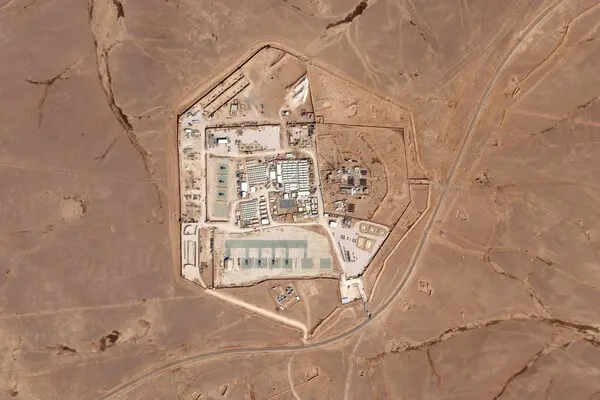The United States has emphatically expressed its aversion to engaging in a war with Iran, asserting that it perceives no inclination from Tehran to seek war either. This declaration from the Pentagon comes on the heels of an incident in Jordan where an Iran-backed group allegedly orchestrated a drone attack on a base, resulting in the tragic deaths of three American soldiers. Pentagon spokesperson Sabrina Singh conveyed the U.S. stance, emphasizing that while they do not actively seek conflict, they stand ready to respond to any attacks on their forces.
The attack in question claimed the lives of three U.S. soldiers and left over 40 troops wounded, with injuries ranging from cuts and bruises to brain injuries. Eight of the wounded were evacuated for medical treatment, including three transported to Landstuhl Regional Medical Center in Germany. The remaining five, who sustained “minor traumatic brain injuries,” were expected to return to duty.
Initial reports suggest that U.S. forces might have mistaken the enemy drone for an American one, allowing it to infiltrate a desert base in Jordan known as Tower 22, where the fatal attack occurred. Sabrina Singh expressed assurance that the U.S. would take decisive action in response to these attacks on its forces. She attributed the attacks to Iran, alleging that the assailants carried the unmistakable “footprints” of the Iran-backed group, Katiab Hezbollah.
The recent escalation comes amid heightened tensions for the United States in the Red Sea, a critical trade route where Houthi rebels from Yemen have been launching missile attacks on various vessels, including oil tankers, posing a potential threat to the global supply chain. In response, the U.S. reportedly conducted airstrikes in Yemen. The Houthis have cited solidarity with Palestinians in Gaza as the motivation behind their Red Sea attacks.
The Gaza conflict has been ongoing for over three months, resulting in a significant loss of life, with at least 25,000 reported deaths in the densely populated Gaza Strip. Israel’s offensive has intensified the complexities of the region, leading to broader implications for geopolitical dynamics.
President Joe Biden faces a delicate balancing act in responding to the attacks. While placing blame on Iran, he seeks to strike back forcefully without escalating tensions in the Gaza conflict further. The political pressure on President Biden to take decisive action against Iran has been mounting, but he remains cautious to avoid sparking a broader conflict in the Middle East.
On Sunday, President Biden pledged to hold those responsible for the recent attacks to account but reiterated the U.S.’s reluctance to plunge into another conflict in the volatile Middle East. The drone attack that claimed the lives of three U.S. soldiers in the remote Tower 22 provides President Biden with a nuanced political space to retaliate against Iran-backed forces without plunging into a direct war with Tehran.
The Pentagon officially identified the soldiers killed in the attack as Sgt. William Jerome Rivers, 46, of Carrollton, Georgia; Spc. Kennedy Ladon Sanders, 24, of Waycross, Georgia; and Spc. Breonna Alexsondria Moffett, 23, of Savannah, Georgia.
The region has witnessed more than 150 attacks on American forces by Iran-backed groups since the commencement of the Israel-Hamas war in October. The precarious situation underscores the complex challenges facing the United States in the Middle East and the delicate diplomatic considerations that will shape its response to acts of aggression in the region.
